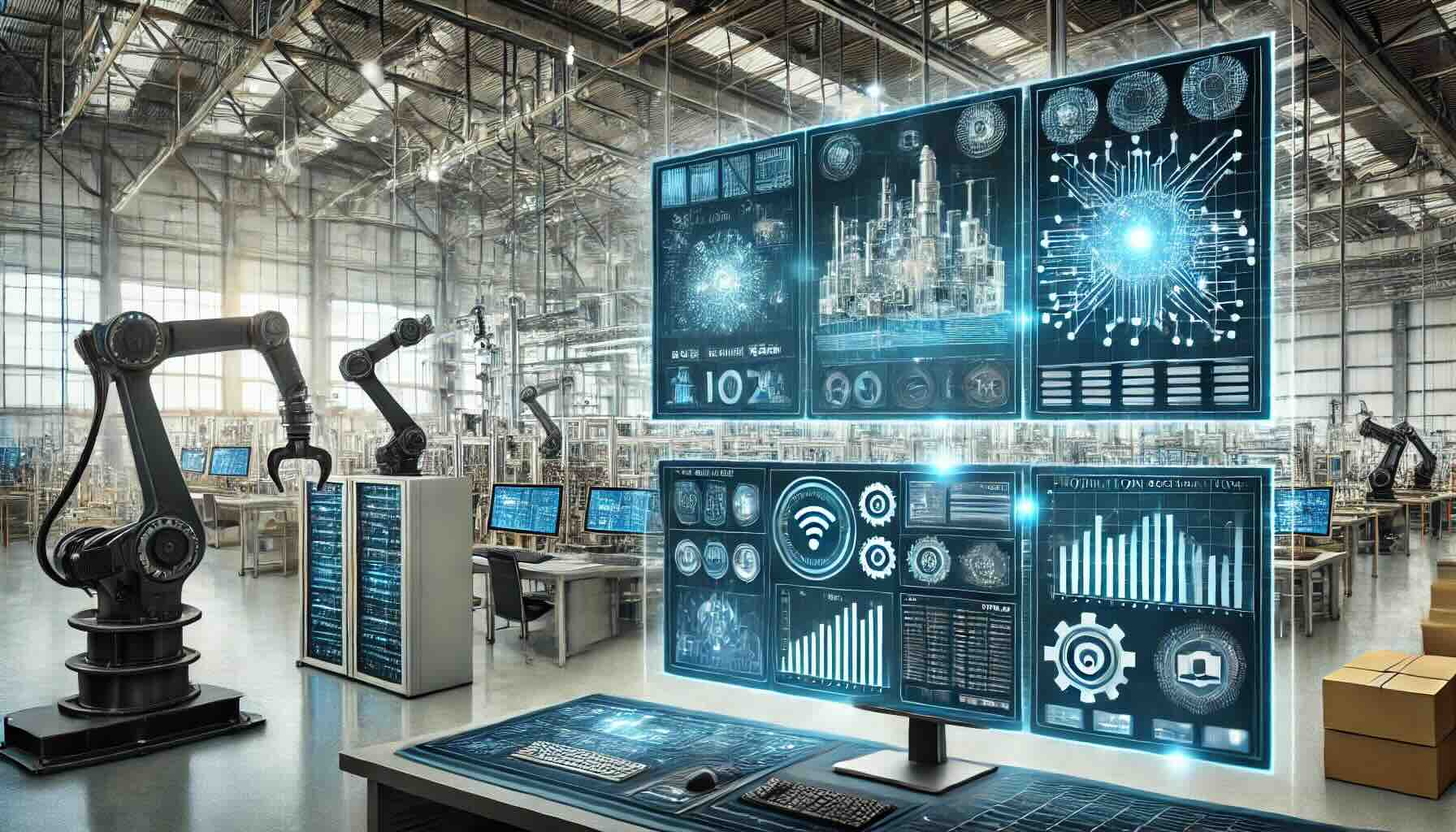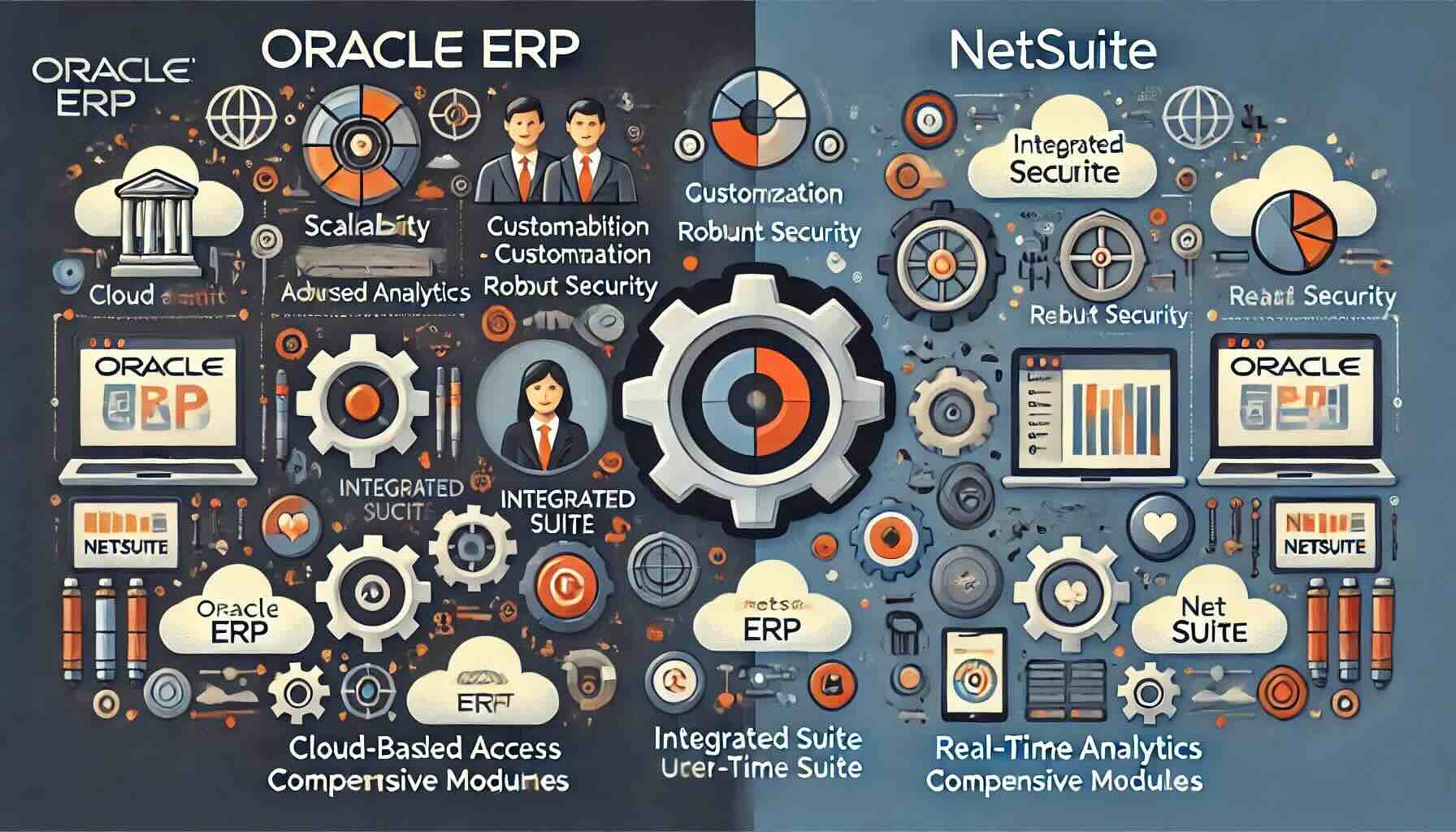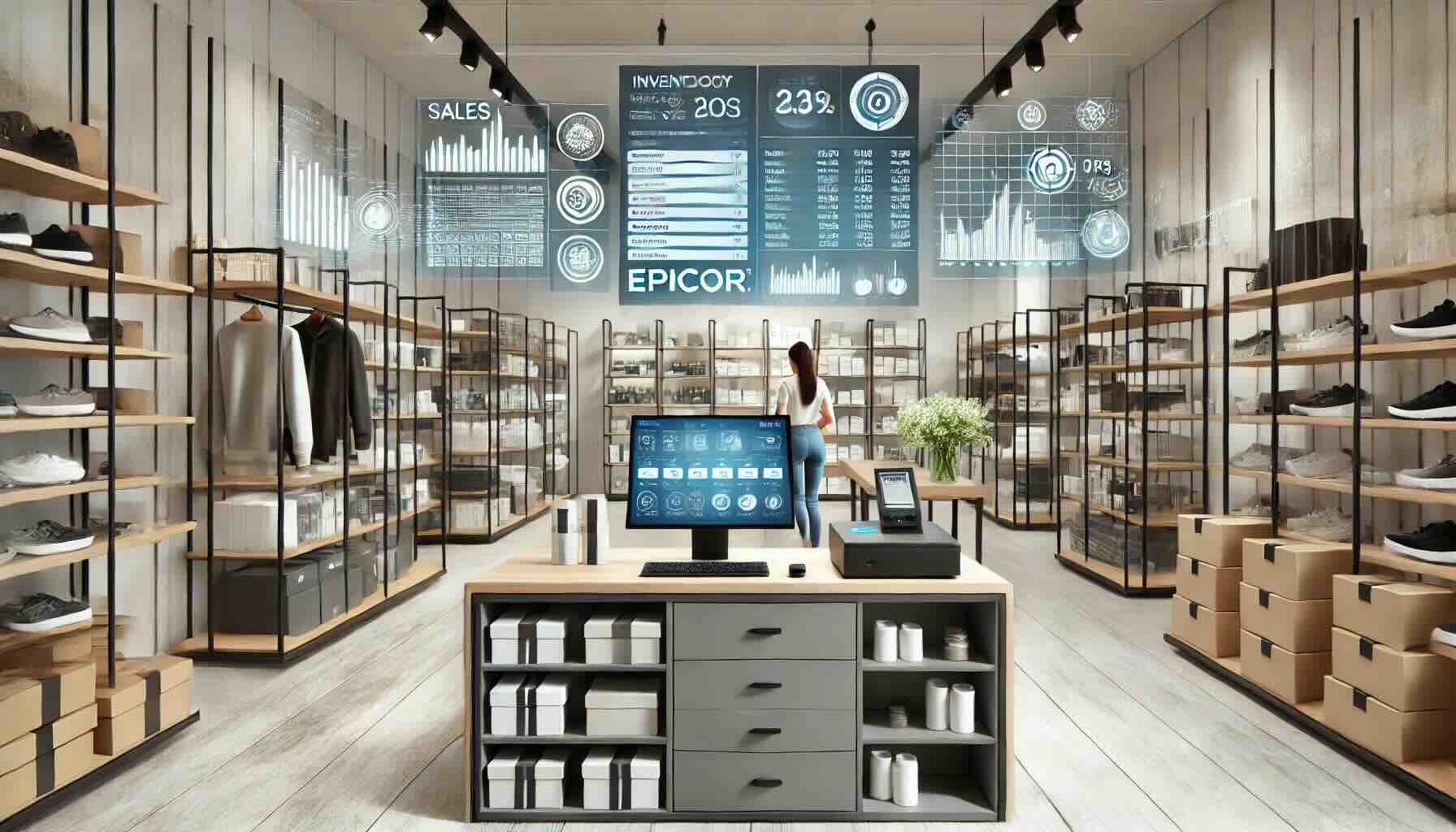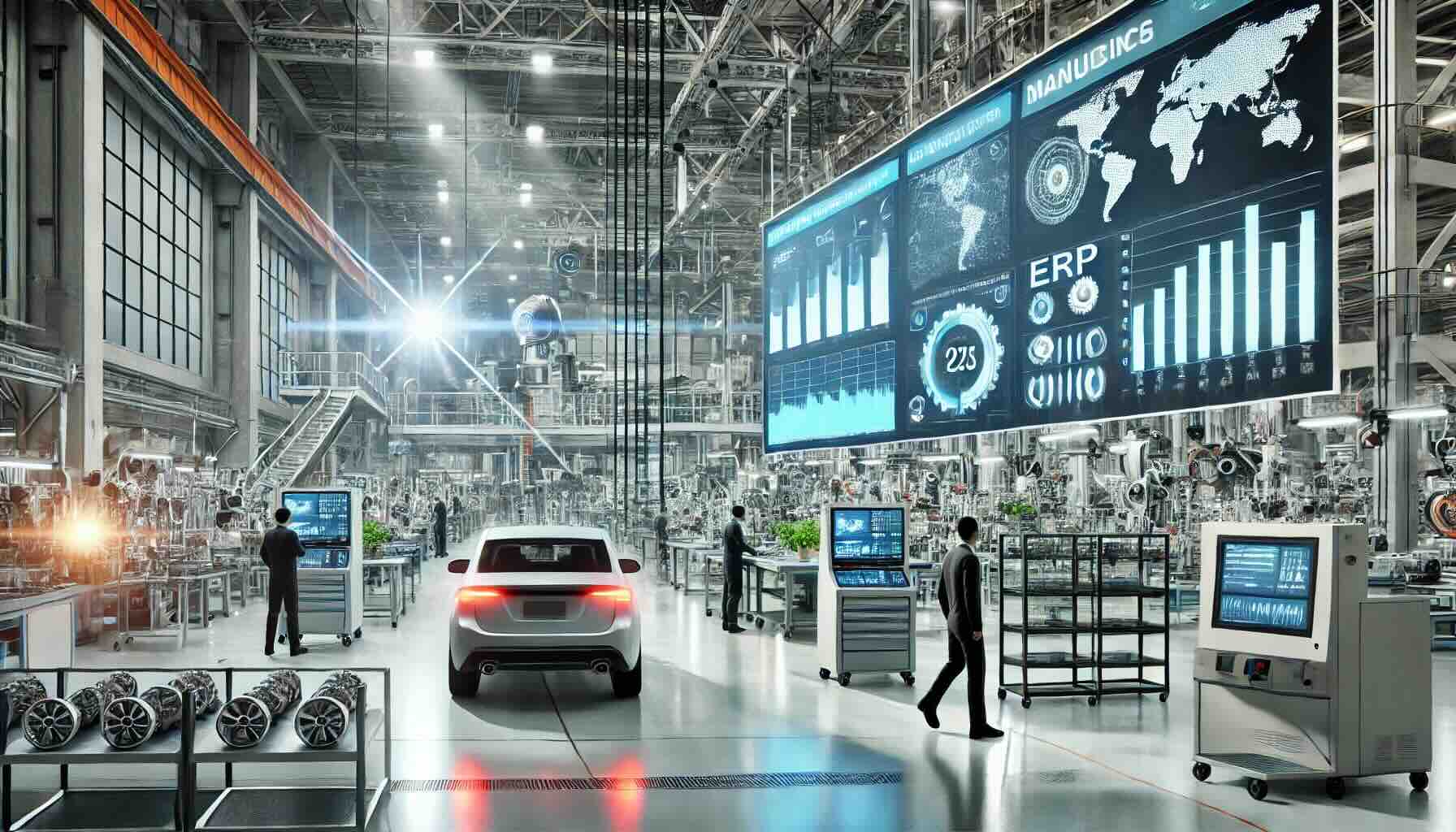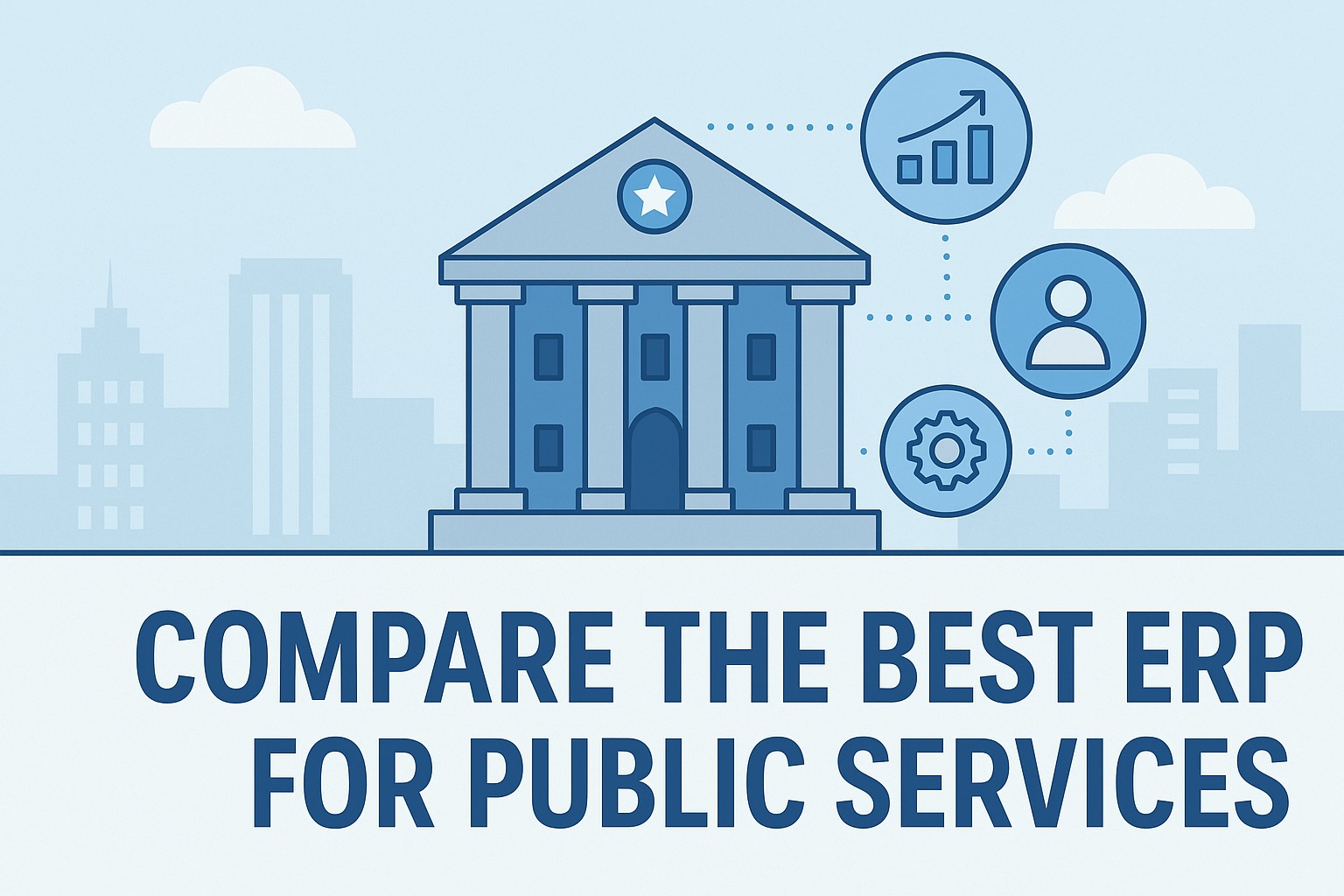Manufacturing ERP Software: Streamlining Operations for Modern Industry

In today’s highly competitive and ever-evolving industrial landscape, manufacturing businesses face significant challenges in meeting customer demands, managing supply chains, and maintaining operational efficiency. Manufacturing ERP software (Enterprise Resource Planning) offers a comprehensive solution to these challenges, enabling manufacturers to optimize processes, increase productivity, and improve decision-making.
This article explores what manufacturing ERP software is, its key features, benefits, and how it can transform your operations. Additionally, we highlight five of the best ERP solutions specifically designed for manufacturing businesses.
What is Manufacturing ERP Software?
Manufacturing ERP software is an integrated platform designed to manage and streamline every aspect of the manufacturing process. It combines various business functions—such as production planning, inventory management, procurement, accounting, and customer relationship management (CRM)—into a unified system.
Unlike generic ERP systems, manufacturing ERP software is tailored specifically for the needs of manufacturers, offering tools to track production schedules, monitor equipment maintenance, and ensure product quality compliance.
Key Features of Manufacturing ERP Software
The functionality of manufacturing ERP software extends far beyond basic operational management. Here are the key features manufacturers can benefit from:
1. Production Planning and Scheduling
Manufacturing ERP software enables precise production planning by aligning production schedules with customer orders and available resources. It ensures that production lines run smoothly while minimizing downtime.
2. Inventory Management
Effective inventory management is critical to prevent overstocking or stockouts. ERP software tracks raw materials, work-in-progress (WIP), and finished goods in real-time, ensuring an optimized inventory flow.
3. Supply Chain Management
From procurement to distribution, ERP software enhances visibility across the entire supply chain. It allows businesses to manage vendor relationships, track shipments, and respond quickly to disruptions.
4. Quality Control
Manufacturing ERP software includes tools to monitor quality standards throughout production. It ensures compliance with regulatory requirements and reduces the risk of defective products.
5. Financial Management
The software integrates financial data with manufacturing operations, providing accurate cost analysis, budget management, and financial forecasting.
6. Analytics and Reporting
Advanced analytics help manufacturers make data-driven decisions. Real-time dashboards and customizable reports offer insights into production efficiency, profitability, and customer satisfaction.
Benefits of Manufacturing ERP Software
Adopting manufacturing ERP software offers numerous advantages for manufacturers, including:
1. Increased Efficiency
By automating routine tasks and providing a centralized data platform, ERP software eliminates manual errors and reduces the time spent on administrative work. This allows employees to focus on value-added activities.
2. Cost Savings
Manufacturing ERP software minimizes waste, optimizes resource utilization, and reduces operational costs. For example, just-in-time (JIT) inventory management prevents excess inventory, while predictive maintenance reduces equipment downtime.
3. Improved Collaboration
With all departments connected through a single system, teams can collaborate more effectively. Real-time data sharing ensures everyone has access to accurate and up-to-date information.
4. Scalability
As your manufacturing business grows, ERP software can scale to accommodate new processes, additional users, and increased production demands. Many ERP solutions offer modular features, allowing you to add functionalities as needed.
5. Regulatory Compliance
For industries subject to stringent regulations, ERP software helps ensure compliance with standards such as ISO, FDA, or OSHA. It simplifies documentation, auditing, and reporting.
6. Enhanced Customer Satisfaction
By improving order accuracy, meeting delivery deadlines, and maintaining product quality, ERP software enhances customer satisfaction and builds trust with clients.
5 Best ERP Solutions for Manufacturing
When it comes to choosing the right manufacturing ERP software, it’s essential to select a solution that aligns with your specific business needs. Here are five of the best ERP solutions tailored for manufacturing companies:
SAP S/4HANA
SAP S/4HANA is a leading ERP solution for manufacturers, offering advanced tools for managing complex operations. It’s particularly suited for large enterprises but can be scaled for medium-sized businesses as well.
Key Features:
- Real-time production monitoring and analytics.
- Advanced supply chain and inventory management tools.
- Integration with IoT and AI for predictive maintenance.
- Comprehensive financial management and cost tracking.
Why It’s Best for Manufacturing: SAP S/4HANA excels in handling complex manufacturing workflows, from discrete to process manufacturing, and supports regulatory compliance.
To find out more about SAP S/4HANA you can visit this link.
Oracle NetSuite ERP
Oracle NetSuite is a cloud-based ERP system known for its flexibility and scalability. It’s an excellent choice for manufacturers looking for an all-in-one platform.
Key Features:
- Production planning and scheduling.
- Real-time inventory tracking and supply chain management.
- Financial and operational insights with built-in analytics.
- Seamless integration with e-commerce platforms.
Why It’s Best for Manufacturing: NetSuite provides a modular structure, allowing manufacturers to add or adjust features as their business grows. Its cloud deployment ensures easy access for remote teams.
To find out more about Oracle NetSuite you can visit this link.
Microsoft Dynamics 365 Supply Chain Management
Microsoft Dynamics 365 is a robust ERP solution designed for mid-sized and large manufacturing businesses. It seamlessly integrates with other Microsoft tools like Office 365 and Power BI.
Key Features:
- Advanced production planning and resource optimization.
- Real-time visibility into supply chain operations.
- AI and IoT integration for predictive maintenance.
- Comprehensive quality control and compliance management.
Why It’s Best for Manufacturing: The tight integration with Microsoft’s ecosystem makes Dynamics 365 ideal for manufacturers seeking collaboration and data-driven decision-making tools.
To find out more about Microsoft Dynamics you can visit this link.
Infor CloudSuite Industrial (SyteLine)
Infor CloudSuite Industrial, also known as SyteLine, is specifically designed for manufacturing and distribution companies. It supports discrete and process manufacturing, making it highly versatile.
Key Features:
- Advanced production planning and scheduling tools.
- Real-time shop floor management and machine monitoring.
- Supply chain optimization with demand forecasting.
- Customizable dashboards and analytics.
Why It’s Best for Manufacturing: Infor CloudSuite offers deep industry-specific functionality, making it an excellent choice for manufacturers with unique or complex requirements.
To find out more about Infor you can visit this link.
Epicor Kinetic
Epicor Kinetic is a user-friendly ERP system built for small to medium-sized manufacturers. Its intuitive design and robust features make it a popular choice in the manufacturing sector.
Key Features:
- Built-in tools for production scheduling and resource planning.
- Comprehensive inventory and supply chain management.
- Mobile-friendly platform for on-the-go data access.
- Industry-specific modules, including aerospace, automotive, and more.
Why It’s Best for Manufacturing: Epicor Kinetic is designed with manufacturers in mind, offering scalability, customization, and ease of use for businesses of all sizes.
To find out more about Epicor you can visit this link.
Trends in Manufacturing ERP Software
The ERP landscape is continually evolving to meet the needs of modern manufacturers. Here are some emerging trends:
- Artificial Intelligence (AI): AI-powered ERP systems use predictive analytics to forecast demand, optimize production schedules, and enhance decision-making.
- Internet of Things (IoT): IoT integration enables real-time monitoring of equipment, reducing downtime through predictive maintenance.
- Mobile ERP: Mobile-friendly ERP systems allow employees to access data and perform tasks from anywhere, increasing flexibility and responsiveness.
- Sustainability Tools: ERP software now includes features to track carbon footprints and manage sustainable manufacturing practices.
Final Thoughts
In the fast-paced world of manufacturing, efficiency and adaptability are key to staying competitive. Manufacturing ERP software serves as the backbone of modern manufacturing operations, providing the tools necessary to streamline processes, reduce costs, and improve overall performance.
By investing in the right ERP solution, manufacturers can not only address current challenges but also position themselves for long-term success. Whether you’re a small-scale producer or a large enterprise, the benefits of ERP software are undeniable—making it an essential component of any forward-thinking manufacturing strategy.
Ready to Transform Your Manufacturing Business?
Implementing the right ERP system could be the game-changer your business needs. With our AI-powered Compare ERP tool, you can effortlessly explore and compare solutions tailored to your unique business needs. It’s free to use, and you’ll receive a guaranteed discount on your first year’s license fees with a referral from Compare ERP. Take the first step toward streamlining your processes and boosting productivity and start comparing today!

